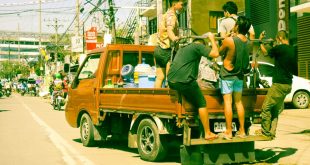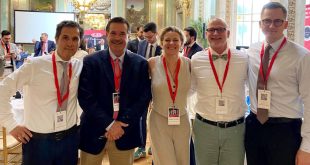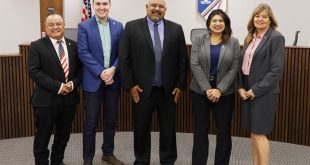A caregiver is someone who looks after an individual and assists them with their daily needs. It can also be individuals and organizations working to care for entire communities and make a difference.
In a briefing hosted by Ethnic Media Services, five organizations were highlighted that are challenging the traditional lens of caregiving, transforming problematic narratives in their communities, and leveraging the arts to amplify the collective voice of Asian American, Pacific Islander, and Native Hawaiian communities through the creation of artistic visualizations that reflect and reinforce cultural identity at a time of rising xenophobia and lingering stereotypes that continue to distort perceptions and inflict harm on entire populations.
A recent survey of caregivers in the community found that a majority — 55% — had been working in the profession for over 5 years with little to no training.
An upcoming exhibit will also shine a light on the experience of Pacific Islanders, seeking the change the narrative around this community and its fight against xenophobia and negative stereotypes.
It is important to understand that Pacific Islanders are far more than just the narrow definitions that mainstream society imposes.
Pasifika Enriching Arts of Utah is also surveying local media on ingrained biases toward Pacific Islanders. Ultimately, the group’s goal is to uplift community voices while using the arts to shift the narrative.
Neeta Patel is with Asian Americans United which has been working to fight off the development of a stadium in Philadelphia that threatens to raze the city’s historic Chinatown.
“Our community is at risk,” says Patel. “We are pushing back to tell our stories, to say that people and communities’ matter, and to push back on a development that benefits only a wealthy few.
“This is a model that should be replicated, a model of people fighting for their homes. This goes beyond gentrification. We call it commodification,” says Patel.
Benny Lai is with the National Asian Pacific Center on Aging which has been working with a local director to produce snapshots of what full-time caregiving for a family member is like.
For Lai, the empathy and understanding are what comes through in these stories. At one time or another, he says, we all have to think about caring for seniors.
Lai says cultural sensitivity is key when it comes to caregiving, along with language accessibility and promoting empathy and compassion, which are universally important regardless of cultural background.
This work takes time, says Neeta Patel of Asian Americans United. Youth leaders have played a key role as connectors across cultures and generations.
“We are using storytelling to get the word out, to share this common narrative, and only when we come together can we stop the kind of initiatives now threatening communities like Philadelphia’s Chinatown.”
Jessica Eckerstorfer is the Co-Executive Director of The SEAD Project in Minnesota, which is home to a community of 100,000 many having arrived from South East Asia as refugees.
“A big part of what we do is storytelling collection and preservation,” says Eckerstorfer.
“People are holding current and intergenerational trauma, says Eckerstorfer. “So we do see a big call from people wanting to come together in person, to find ways to help one another.”
Eckerstorfer adds that much of the focus is on building trust with elders, winning their confidence, and creating intergenerational collaborations that connect younger members of the communities with the histories of elders.
Many of the community elders carry memories of trauma. Memory mapping in some of these workshops seeks to map out memories of joy alongside those of pain and trauma.
But she says trust is key, so finding creative ways to reach people who may not immediately trust traditional approaches where they are is important.
In Utah, people are seeking ways to fix the system, not lay blame. And this has been unifying for the Pacific Islander community, says Kalani Tonga-Tukuafu.
“Stories about our community were killed by publishers in Philadelphia,” says Neeta Patel. “We know how difficult it is to get our stories across, and this is very new where stories are being squashed by the billionaire developers.”






